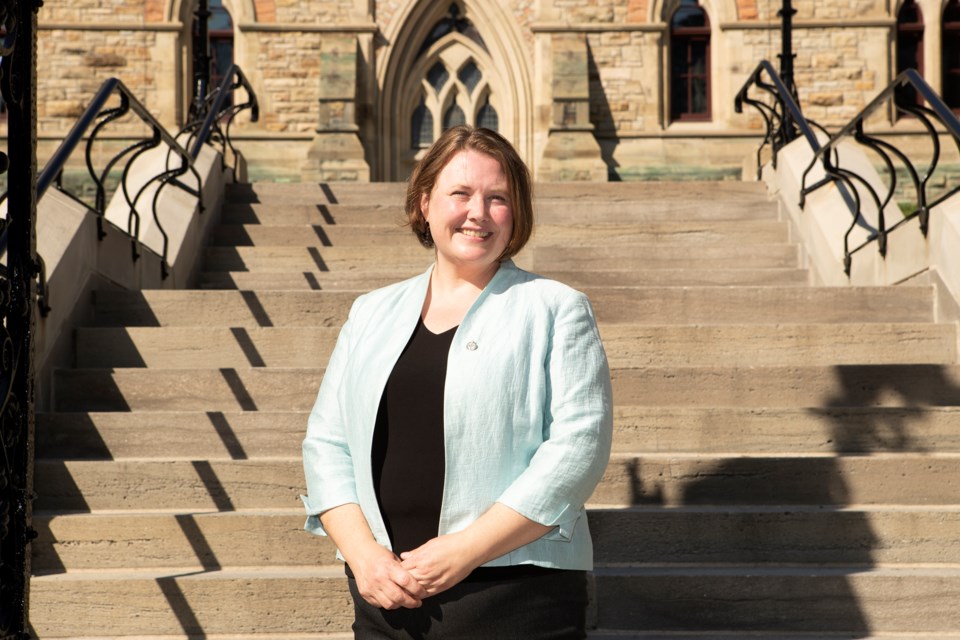North Island-Powell River MP Rachel Blaney’s reaction to the 2023 federal government’s fall economic statement is disappointment.
“The reality is, when I look at it, the things that I’m really proud of are things the NDP forced this government to do,” said Blaney. “They [federal government] reconfirmed dental care for seniors, people living with disabilities and children 18 and under, and it should be coming out early in the new year before the end of this budget cycle. That’s great.
“We see more of the doubling of the GST rebate and I think that’s great. We’ve seen some funding removed from the oil and gas sector – not enough – but we have seen the beginning of that and that’s a step in the right direction.”
Blaney said, however, that the initiative is happening at a glacial pace and it’s happening at the same time the oil and gas industry is seeing profits higher than they have seen in the last 30 years.
“I wish the government would stop giving resources to folks who are obviously making a very good income,” said Blaney.
Where she is significantly disappointed is around the climate crisis.
“They [federal government] did not reconfirm any seriousness,” said Blaney. “They said they are going to get to their emission targets but they have not proven that. They can talk a lot but until we see it, it’s hard to believe.
“I just saw a report from Oxfam that the top one per cent richest on the planet are emitting as much carbon as the 66 per cent of the lowest income folks on the planet. That tells you the income disparity is growing and the impacts on the environment are significant. We are not doing what Canada needs to do, which is making the top one per cent pay their fair share so we can deal with this crisis in a more profound way.”
Housing options
Another area of disappointment for Blaney is around housing. She said with the rental construction finance initiative, she was hoping to see this line of funding expand and allow other people to apply and use it. She said largely, it is being used by home builders who build housing at market rents.
“We know for a fact that market rents are really high, so people can’t afford them, but the builders are getting tax relief,” said Blaney. “That is not helping the many Canadians who need housing. I was hoping to see the scope expand to look at things like housing for students in college and university, and using the funds to build housing for young people, plus more housing for low-income folks. I was hoping the government would take an assertive stand on housing for seniors and allow them to access this, too.
“It would make a huge difference in ridings like ours where many seniors are struggling and can’t find a place to rent.”
Blaney said if people in the qathet region and elsewhere don’t have a safe home, it makes life really unstable.
She said the country has lost a lot of not-for-profit housing. She added that when the Conservatives were in power, they made cuts to funding for the nonprofits that were supplying housing for people who were struggling. She said when the Liberals came to power, they never fixed it.
“This has been an ongoing issue,” said Blaney. “The NDP have been talking about how we were going through a significant crisis in the late ’90s. It’s not a surprise we are here because we haven’t seen meaningful investment. It’s disappointing to not see the government treat the matter with the urgency I would have appreciated because it’s an urgency Canadians are experiencing.”
Blaney said municipal governments are on the ground, working at dealing with this issue and have the least amount of resources of any level of government. She said the province and federal government need to step up.
“Municipalities are working hard but they don’t have a significant tax base to work off,” said Blaney. “We should really be working with our municipalities and trying to make life more affordable for their constituents.
“We are in a crisis because we haven’t seen investment in many, many years.”
Blaney said the question of how the government is going to pay for this comes up. She said in the early 2000s, the corporate tax rate was 28 per cent but it’s down to 15 per cent now. She said even a small increase in that would make a significant difference and allow the government to invest in communities.
“The people who are paying for this crisis are the most vulnerable,” said Blaney, “and we need to do better.”
Join the Peak's email list for the top headlines right in your inbox Monday to Friday.



